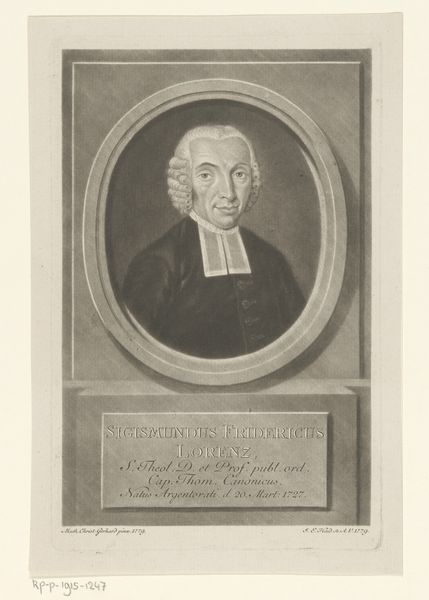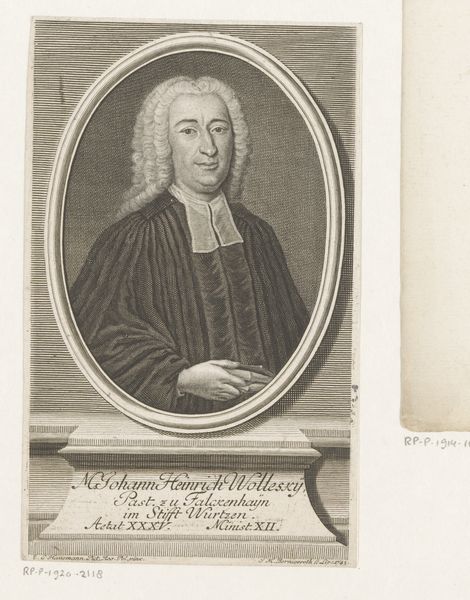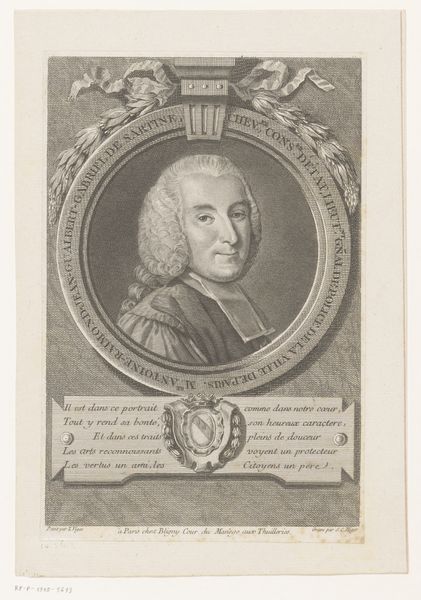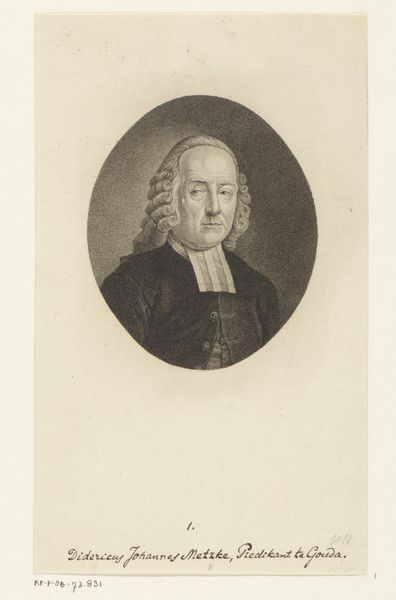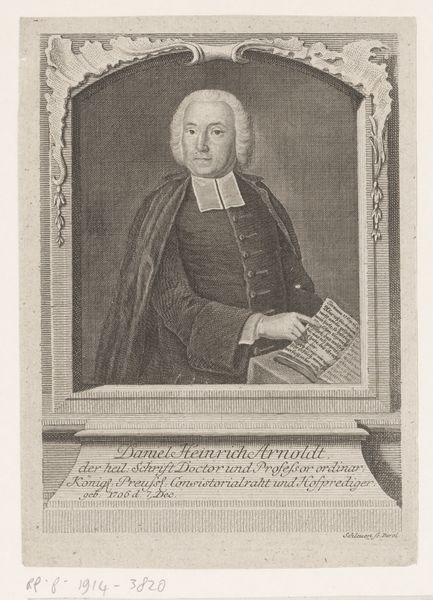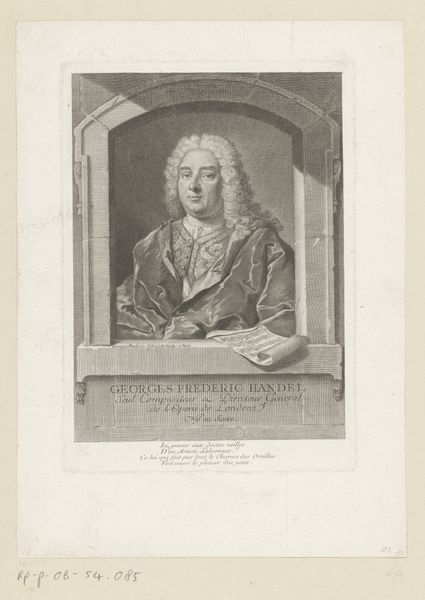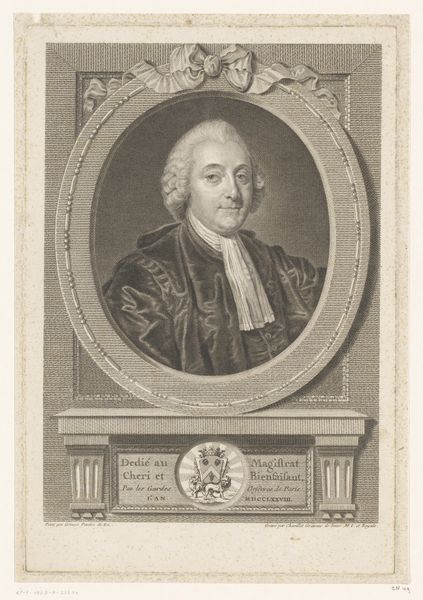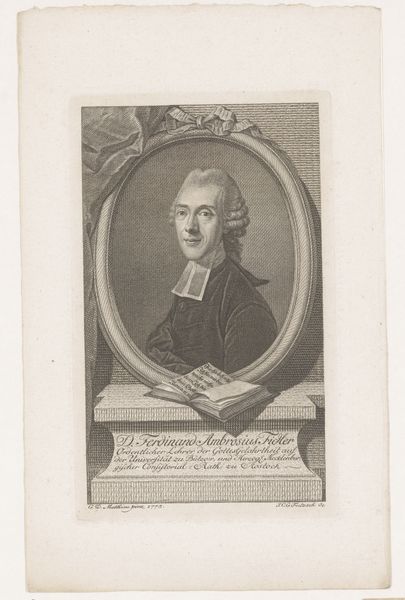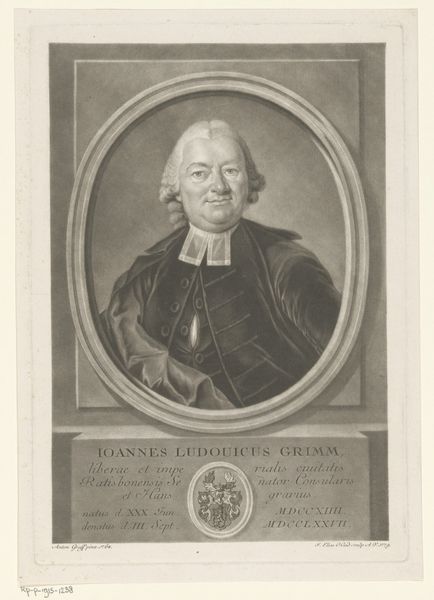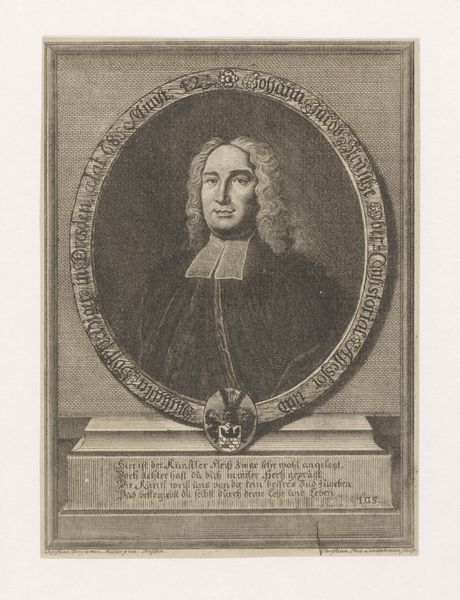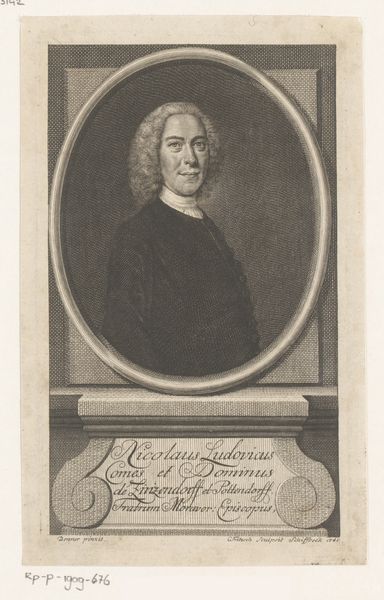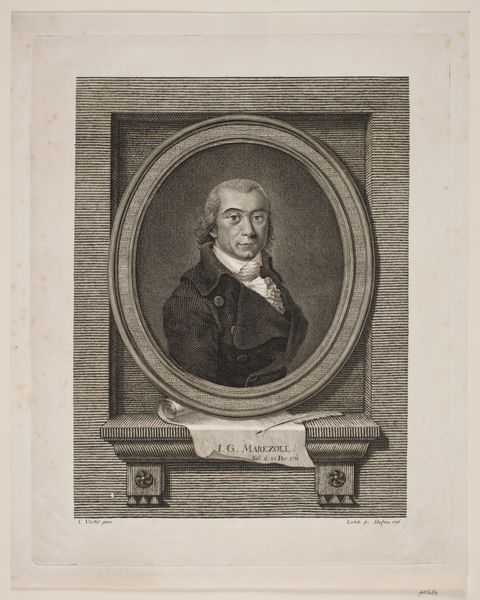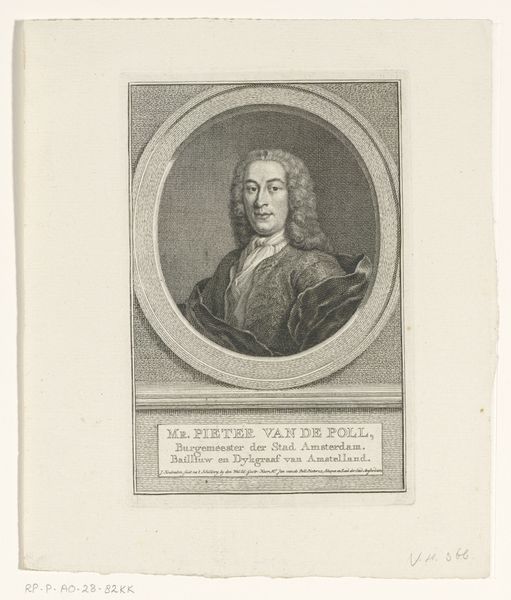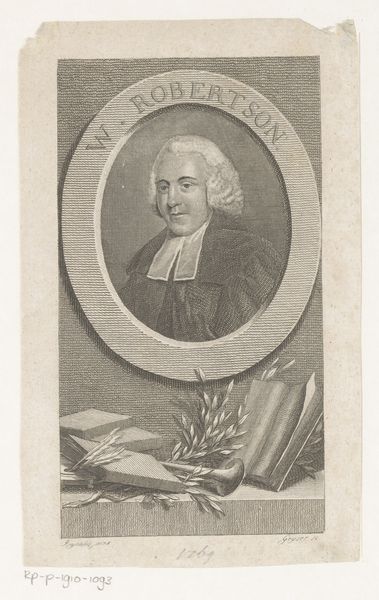
Dimensions: height 220 mm, width 140 mm
Copyright: Rijks Museum: Open Domain
Johann Elias Haid created this mezzotint portrait of Georg Joachim Zollikofer in Germany around 1774. The print, held in the Rijksmuseum, commemorates Zollikofer, a prominent clergyman, and shows how the institutions of religion and art were intertwined. Consider the visual codes here: the oval frame suggests classical virtue, while the inscription praises Zollikofer’s exemplary public and private life as a Calvinist preacher. The very act of creating and displaying this print speaks to the social standing and cultural influence of religious figures in 18th-century German society. These prints often circulated among a specific social class, reinforcing their values and beliefs. To truly understand this image, one must delve into the religious and social history of the time. Investigating church records, personal letters, and other documents would provide insight into Zollikofer’s role and how his image functioned within his community. Ultimately, this portrait serves as a reminder that art is always embedded in a specific time and place.
Comments
No comments
Be the first to comment and join the conversation on the ultimate creative platform.
